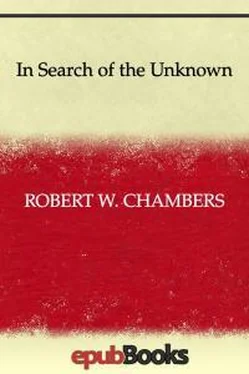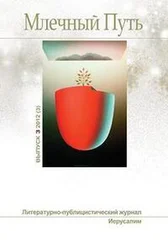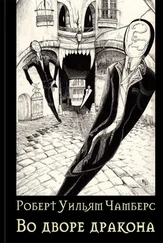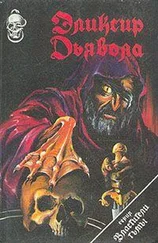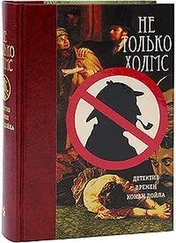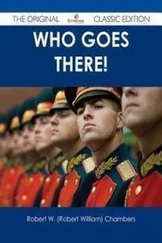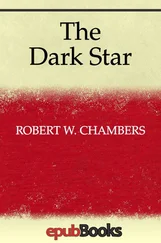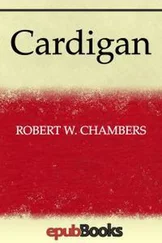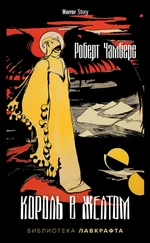Роберт Чамберс - In Search of the Unknown
Здесь есть возможность читать онлайн «Роберт Чамберс - In Search of the Unknown» весь текст электронной книги совершенно бесплатно (целиком полную версию без сокращений). В некоторых случаях можно слушать аудио, скачать через торрент в формате fb2 и присутствует краткое содержание. Год выпуска: 2014, Издательство: epubBooks Classics, Жанр: Фантастика и фэнтези, на английском языке. Описание произведения, (предисловие) а так же отзывы посетителей доступны на портале библиотеки ЛибКат.
- Название:In Search of the Unknown
- Автор:
- Издательство:epubBooks Classics
- Жанр:
- Год:2014
- ISBN:нет данных
- Рейтинг книги:3 / 5. Голосов: 1
-
Избранное:Добавить в избранное
- Отзывы:
-
Ваша оценка:
- 60
- 1
- 2
- 3
- 4
- 5
In Search of the Unknown: краткое содержание, описание и аннотация
Предлагаем к чтению аннотацию, описание, краткое содержание или предисловие (зависит от того, что написал сам автор книги «In Search of the Unknown»). Если вы не нашли необходимую информацию о книге — напишите в комментариях, мы постараемся отыскать её.
In Search of the Unknown — читать онлайн бесплатно полную книгу (весь текст) целиком
Ниже представлен текст книги, разбитый по страницам. Система сохранения места последней прочитанной страницы, позволяет с удобством читать онлайн бесплатно книгу «In Search of the Unknown», без необходимости каждый раз заново искать на чём Вы остановились. Поставьте закладку, и сможете в любой момент перейти на страницу, на которой закончили чтение.
Интервал:
Закладка:
In Search of the Unknown
Robert W. Chambers
Dedication
To My Friend E. Le Grand Beers
MY DEAR LE GRAND,—You and I were early drawn together by a common love of nature. Your researches into the natural history of the tree–toad, your observations upon the mud–turtles of Providence Township, your experiments with the fresh–water lobster, all stimulated my enthusiasm in a scientific direction, which has crystallized in this helpful little book, dedicated to you.Pray accept it as an insignificant payment on account for all I owe to you.
THE AUTHOR.
Preface
It appears to the writer that there is urgent need of more "nature books"—books that are scraped clear of fiction and which display only the carefully articulated skeleton of fact. Hence this little volume, presented with some hesitation and more modesty. Various chapters have, at intervals, appeared in the pages of various publications. The continued narrative is now published for the first time; and the writer trusts that it may inspire enthusiasm for natural and scientific research, and inculcate a passion for accurate observation among the young.
THE AUTHOR.
April 1, 1904.
SHE STARTED TOWARD THE DOOR
Epigraph
Where the slanting forest eaves,
Shingled tight with greenest leaves,
Sweep the scented meadow–sedge,
Let us snoop along the edge;
Let us pry in hidden nooks,
Laden with our nature books,
Scaring birds with happy cries,
Chloroforming butterflies,
Rooting up each woodland plant,
Pinning beetle, fly, and ant,
So we may identify
What we've ruined, by–and–by.
I
Because it all seems so improbable—so horribly impossible to me now, sitting here safe and sane in my own library—I hesitate to record an episode which already appears to me less horrible than grotesque. Yet, unless this story is written now, I know I shall never have the courage to tell the truth about the matter—not from fear of ridicule, but because I myself shall soon cease to credit what I now know to be true. Yet scarcely a month has elapsed since I heard the stealthy purring of what I believed to be the shoaling undertow—scarcely a month ago, with my own eyes, I saw that which, even now, I am beginning to believe never existed. As for the harbor–master—and the blow I am now striking at the old order of things—But of that I shall not speak now, or later; I shall try to tell the story simply and truthfully, and let my friends testify as to my probity and the publishers of this book corroborate them.
On the 29th of February I resigned my position under the government and left Washington to accept an offer from Professor Farrago—whose name he kindly permits me to use—and on the first day of April I entered upon my new and congenial duties as general superintendent of the water–fowl department connected with the Zoological Gardens then in course of erection at Bronx Park, New York.
For a week I followed the routine, examining the new foundations, studying the architect's plans, following the surveyors through the Bronx thickets, suggesting arrangements for water–courses and pools destined to be included in the enclosures for swans, geese, pelicans, herons, and such of the waders and swimmers as we might expect to acclimate in Bronx Park.
It was at that time the policy of the trustees and officers of the Zoological Gardens neither to employ collectors nor to send out expeditions in search of specimens. The society decided to depend upon voluntary contributions, and I was always busy, part of the day, in dictating answers to correspondents who wrote offering their services as hunters of big game, collectors of all sorts of fauna, trappers, snarers, and also to those who offered specimens for sale, usually at exorbitant rates.
To the proprietors of five–legged kittens, mangy lynxes, moth–eaten coyotes, and dancing bears I returned courteous but uncompromising refusals—of course, first submitting all such letters, together with my replies, to Professor Farrago.
One day towards the end of May, however, just as I was leaving Bronx Park to return to town, Professor Lesard, of the reptilian department, called out to me that Professor Farrago wanted to see me a moment; so I put my pipe into my pocket again and retraced my steps to the temporary, wooden building occupied by Professor Farrago, general superintendent of the Zoological Gardens. The professor, who was sitting at his desk before a pile of letters and replies submitted for approval by me, pushed his glasses down and looked over them at me with a whimsical smile that suggested amusement, impatience, annoyance, and perhaps a faint trace of apology.
"Now, here's a letter," he said, with a deliberate gesture towards a sheet of paper impaled on a file—"a letter that I suppose you remember." He disengaged the sheet of paper and handed it to me.
"Oh yes," I replied, with a shrug; "of course the man is mistaken—or—"
"Or what?" demanded Professor Farrago, tranquilly, wiping his glasses.
"—Or a liar," I replied.
After a silence he leaned back in his chair and bade me read the letter to him again, and I did so with a contemptuous tolerance for the writer, who must have been either a very innocent victim or a very stupid swindler. I said as much to Professor Farrago, but, to my surprise, he appeared to waver.
"I suppose," he said, with his near–sighted, embarrassed smile, "that nine hundred and ninety–nine men in a thousand would throw that letter aside and condemn the writer as a liar or a fool?"
"In my opinion," said I, "he's one or the other."
"He isn't—in mine," said the professor, placidly.
"What!" I exclaimed. "Here is a man living all alone on a strip of rock and sand between the wilderness and the sea, who wants you to send somebody to take charge of a bird that doesn't exist!"
"How do you know," asked Professor Farrago, "that the bird in question does not exist?"
"It is generally accepted," I replied, sarcastically, "that the great auk has been extinct for years. Therefore I may be pardoned for doubting that our correspondent possesses a pair of them alive."
"Oh, you young fellows," said the professor, smiling wearily, "you embark on a theory for destinations that don't exist."
He leaned back in his chair, his amused eyes searching space for the imagery that made him smile.
"Like swimming squirrels, you navigate with the help of Heaven and a stiff breeze, but you never land where you hope to—do you?"
Rather red in the face, I said: "Don't you believe the great auk to be extinct?"
"Audubon saw the great auk."
"Who has seen a single specimen since?"
"Nobody—except our correspondent here," he replied, laughing.
I laughed, too, considering the interview at an end, but the professor went on, coolly:
"Whatever it is that our correspondent has—and I am daring to believe that it is the great auk itself—I want you to secure it for the society."
When my astonishment subsided my first conscious sentiment was one of pity. Clearly, Professor Farrago was on the verge of dotage—ah, what a loss to the world!
I believe now that Professor Farrago perfectly interpreted my thoughts, but he betrayed neither resentment nor impatience. I drew a chair up beside his desk—there was nothing to do but to obey, and this fool's errand was none of my conceiving.
Together we made out a list of articles necessary for me and itemized the expenses I might incur, and I set a date for my return, allowing no margin for a successful termination to the expedition.
Читать дальшеИнтервал:
Закладка:
Похожие книги на «In Search of the Unknown»
Представляем Вашему вниманию похожие книги на «In Search of the Unknown» списком для выбора. Мы отобрали схожую по названию и смыслу литературу в надежде предоставить читателям больше вариантов отыскать новые, интересные, ещё непрочитанные произведения.
Обсуждение, отзывы о книге «In Search of the Unknown» и просто собственные мнения читателей. Оставьте ваши комментарии, напишите, что Вы думаете о произведении, его смысле или главных героях. Укажите что конкретно понравилось, а что нет, и почему Вы так считаете.
